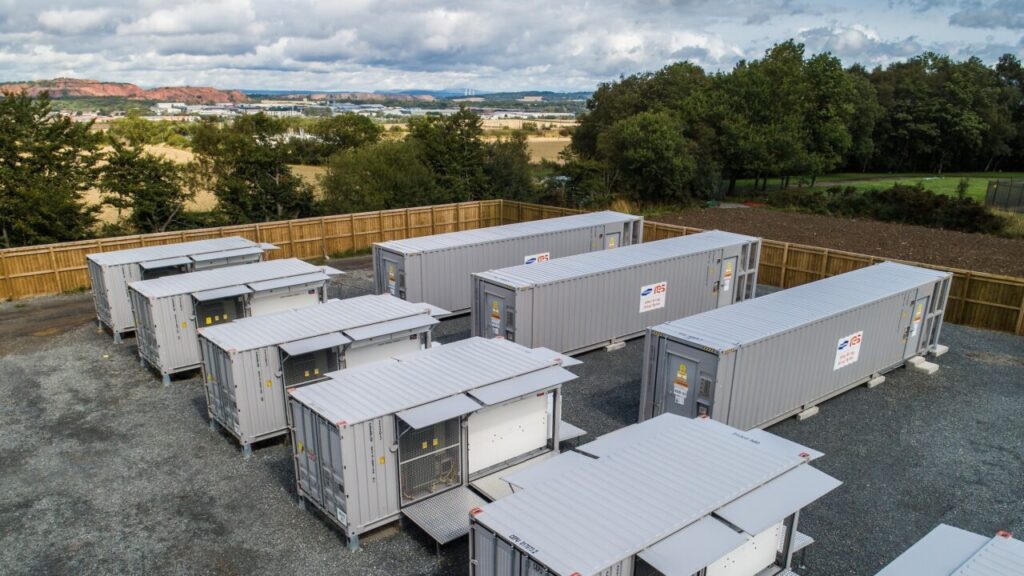
Renewable energy firm RES has been granted planning permission for its 49.9MW battery energy storage system (BESS) project near Montrose, Scotland.
The Dunmill Energy Storage System has been awarded full planning permission by Angus Council, allowing construction to begin. Although a date for the beginning of construction has yet to be announced, RES estimates construction will take approximately 12 months to complete. The BESS will be located on land adjacent to the Bridge of Dun substation and will be connected to it.
Biodiversity was a key consideration in the project development plans; thanks to native tree planting proposals and other biodiversity improvement measures, this project will create a biodiversity net gain of around 12%.
Peter Deeney, development project manager for RES, said: “Energy storage will be crucial in enabling the continued rollout of zero-carbon energy needed to replace electricity generation from fossil fuels. We welcome Angus Council’s positive decision, which allows Dunmill Energy Storage System to play its part in supporting the net zero emissions targets in Scotland while ensuring the safe and reliable operation of the grid network.
“We’d like to thank the local residents and stakeholders for their feedback and support on this application. The collaborative design process resulted in a better proposal which will be able to deliver a range of benefits both economically and environmentally.”
RES BESS in the UK
RES has developed over 700MW of energy storage projects in the UK and Ireland and currently manages over 600MW of operational storage projects.
The company has further ambitions in Scotland; last month, the firm submitted a planning application for the Corshellach energy storage project to Moray Council. If approved, the proposed 49.9MW BESS will be situated next to Berryburn substation; RES’s planning application notes that this places it near existing energy infrastructure and this minimizes the need for extra construction.
Milo Amsbury-Savage, development project manager for RES, commented on how the general public is gaining a greater understanding of the need for BESS projects, noting: “it is clear that people are feeling better informed about the need for energy storage and the vital role it plays in the wider decarbonisation of the energy industry to achieve our net zero targets and tackle climate change.”

